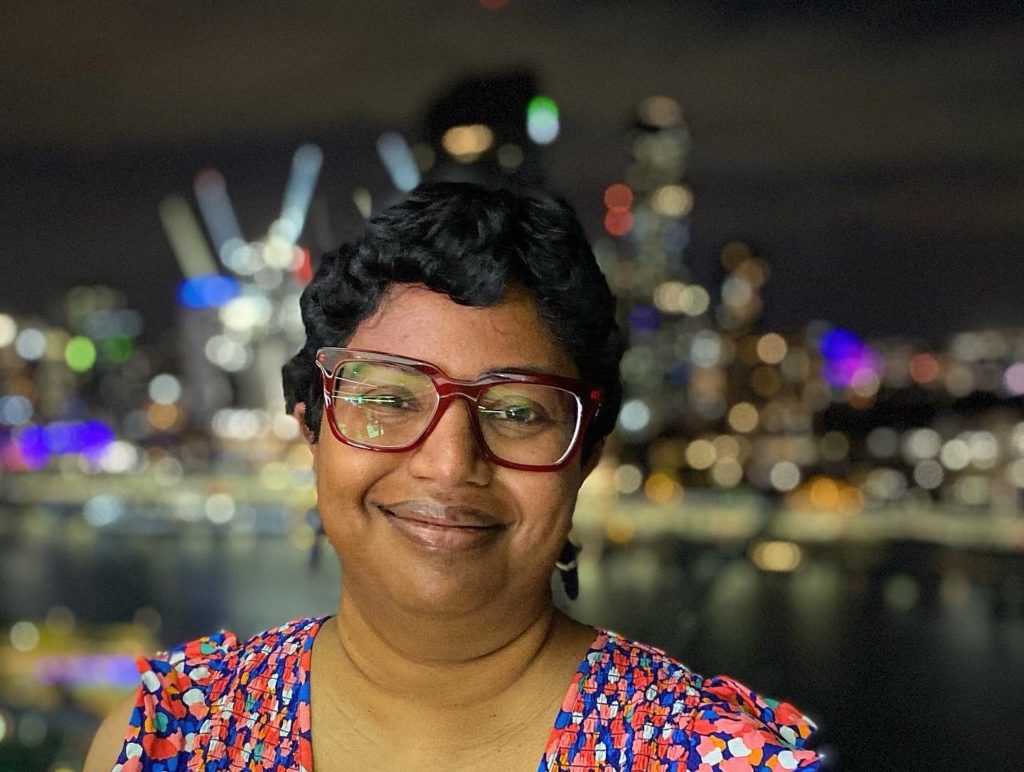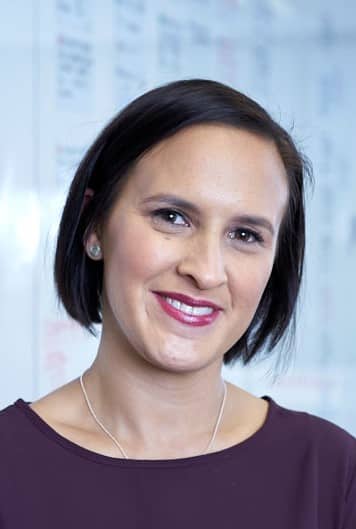At 39-years-old, Naveena Nekkalapudi went to see her doctor about a cough and a raised lymph node.
During the appointment, she decided to mention a lump in her breast that used to come and go with her hormonal cycle but had been ‘sticking around’ lately. The doctor ordered a mammogram and Naveena thought nothing of it– she was young, healthy, fit, never smoked and didn’t have any family history of breast cancer.
Naveena organised to have her mammogram on Christmas Eve 2014 because she wanted to get it done before the busy holiday period. However, Naveena’s GP rang that day to tell her the news she’d never saw coming: she had breast cancer.
The subsequent months saw Naveena undergoing treatments like a lumpectomy andthe removal of all the lymph nodes in her arm pit followed by six months of chemotherapy and six weeks of radiation therapy. Her treatment side effects included fatigue, nausea, hair loss, constipation, haemorrhoids and a long-term side effect of joint pain and feeling pins and needles in her limbs.
She also developed painful scar tissue running from underneath her breast, up into her arm pit and down her arm as well as menopausal symptoms like hot flashes and night sweats.
At one point, Naveena developed an infection that put her in hospital for five days. She was given a drug that caused burning in her skin and bones. While it was a painful experience, she knew the drug was needed to stimulate her bone marrow to produce white blood cells and help prevent future infections.
“Mentally, I kind of went, ‘well, this is all temporary, and it’s what I have to do to survive to beat the cancer and then I can go back to my old life’,” she shares.

Throughout her battle against cancer, Naveena listened to medical professionals with the ultimate goal of survival.
After finally finishing treatment in October of 2015, and during recovery, she worked with a pain specialist to figure out the right dosage of pain medication to be able to function in day-to-day life. She also took up swimming to build up her stamina and manage the weight gain.
Managing the long-term side effects from there was a challenging process, that she hadn’t anticipated. She had never known her own resilience as much as in the aftermath of treatment.
“It takes a lot because you’re grieving your old life”, she says. “You have to finally accept that life will never be the same again”.
It’s this unique strength and resilience that Jenny Gilchrist, a breast oncology nurse practitioner and member of the Breast Cancer Trials Scientific Advisory Committee, says she has seen in every single patient who undergoes cancer treatment.
“People are a lot more resilient than they think they are,” says Gilchrist.
“Nobody thinks they can do chemotherapy– they think, ‘How am I going to cope with this?’ And in actual fact, they all do it. They all come out the other end.”

Gilchrist looks after patients with early breast cancer and those who have metastatic breast cancer.
“Every person is different in the way their body processes drugs,” she says, but notes that the most common side effects she sees in patients are hair loss, nausea, fatigue, hormonal changes and low white cell counts that make patients more susceptible to getting infections.
When it comes to handling these treatment side effects, Gilchrist says patients should listen to the advice of medical professionals and remember that chemotherapy is given when “the benefits outweigh the risks”.
“The best thing [patients] can do is communicate with their team, and if they’re concerned about something or there’s a particular worry, they should speak to someone about it. There’s no prizes for being a martyr.”
She knows that many people expect to “feel like garbage during chemotherapy” but wants to assure patients that they don’t necessarily need to feel that way anymore.
“I’m not saying that you’re going to feel like you’re walking on clouds and completely normal, but you aren’t necessarily in bed for six months either. Chemotherapy is not like that anymore. It’s not like it’s portrayed in movies or TV shows. The supportive medications that we give are so much better now.”
Gilchrist also wants to remind patients that they have a “whole crew of people to support them” through treatment– their medical team, family and friends.
“Everybody does get through it and I think people come out a better version of themselves on the other side of a cancer diagnosis.”
“It forces people to re-evaluate what’s important in their life, not to sweat the small things and often it puts things into perspective for themselves and the people around them.”
Join Breast Cancer Trials’ next free and online Q&A, happening Thursday 23 February from 5-6:30pm (AEDT). The session will be moderated by author and journalist Annabel Crabb on the topic of the side effects of breast cancer treatment. To register click here.

